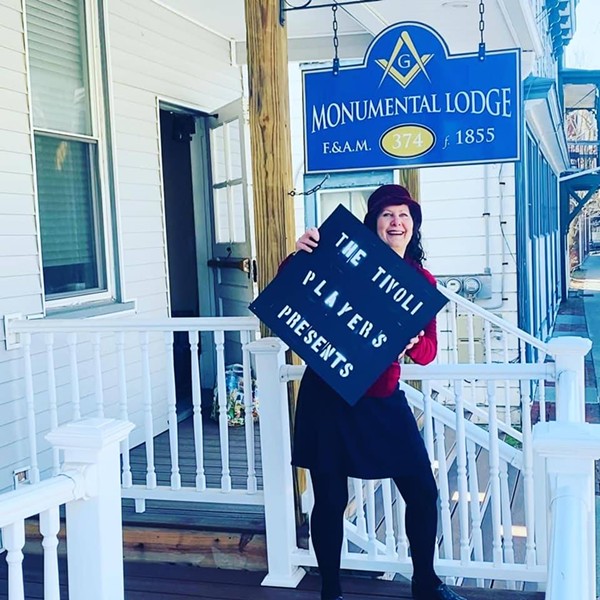Nature Theater of Oklahoma is not from Oklahoma. Founding directors Kelly Copper and Pavol Liska are from California and the former Czechoslovakia, respectively. They met at Columbia University, formed a theater collective in 2005, and named it after a chapter from Franz Kafka's unfinished novel Amerika. After a long journey through an alienating turn-of-the-century America (think the first half of a Horatio Alger novel), Karl Rossmann, the protagonist, comes across a promising advertisement that ultimately leads him into a distinctively Kafkaesque experience: "The Great Nature Theater of Oklahoma is calling you! It's calling today only! If you miss this opportunity, there will never be another!"
While "surreal" may not be the most fitting word to describe Nature Theater of Oklahoma, there is an element of the unreal to their work—or, at least, an attempt to unsettle our ideas of the familiar. The idea for "Romeo and Juliet," staged from February 21 to 23 at Bard's Fisher Center, comes from an earlier Nature Theater play called "No Dice," which features telephone conversations between Liska and people he randomly called and asked to tell a story, any story. After discovering people's inability to tell a story on the spot, Liska applied the same approach to a story that everyone knows—or thinks they know. "The director called people and said, 'Tell me the story of "Romeo and Juliet,"' says company member Anne Gridley, a Bard alum who plays Juliet. "The performers say exactly what these people said over the telephone." The resulting vague descriptions and gaps in logic are performed with traditional Shakespearean grandiosity, accents and all. "There's one [retelling] that goes into 9/11," says Gridley, "then one which talks about Romeo masturbating a lot."
The mangled script is not meant as an insult to the Bard himself, though. "It's not ironic," says Copper. "What was interesting to us was [how] people's relationship to a particular story may change over time." Gridley adds, "Hopefully it just reveals the frailties of humans—you think you know the story, but you really don't."
"Romeo and Juliet" does much more than investigate human frailty, though. In true medium-is-the-message spirit, Nature Theater uses telephone conversations as a way of making a statement about the purpose of art and the possibility in human collaboration. "We like to take material that other people think is garbage—sort of Marcel Duchamp inspired, I guess—and figure out how we can elevate it somehow to make it Shakespearean," says Gridley. "There's something more communal about gathering the text that way instead of a playwright sitting alone in an attic somewhere and sending down their grand text to the performers."
Nature Theater's newest show-in-the-making, "Life and Times" (which the company will partially film while in residence at Bard this summer), also experiments with telephone conversations. "It's a huge project that will ultimately be 24 hours long, and it's one person's life story told in 10 different telephone calls," says Gridley. While Nature Theater's style is perhaps not reducible to any single word (the New Yorker called "Romeo and Juliet" "ironic"; the New York Times "adorable"), the telephone conversation seems a fitting symbol of the company's raison d'être: raising the fallible human experience to the level of art, and using the stage as a kind of call to action, encouraging each person in the audience to imagine that they were asked to recount the iconic play. In "Romeo and Juliet," Gridley acknowledges, you get eight different versions of the classic story. "Maybe nine," she adds, "because you're telling yourself your own."
Live Arts Bard presents "Romeo and Juliet" from February 21 to 23 at Bard's Fisher Center. (845) 758-7900; Fishercenter.bard.edu.


















